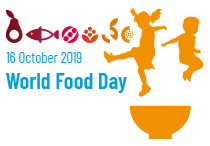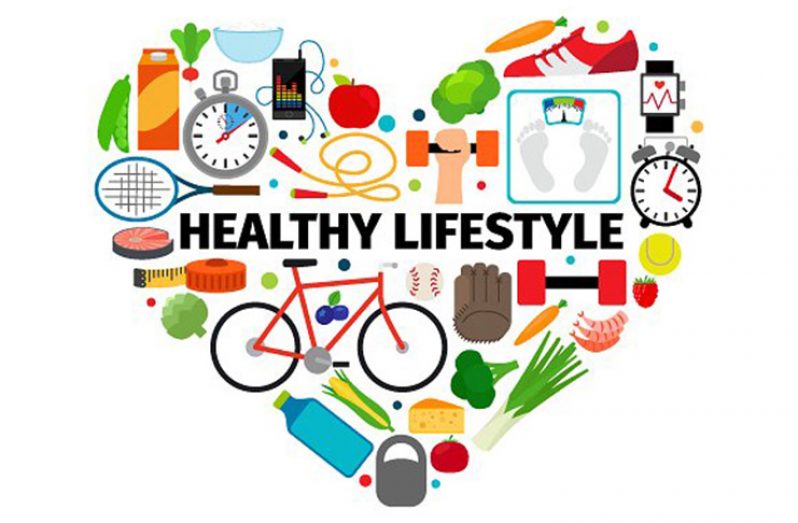“Those who think they have no time for healthy eating will sooner or later have to find time for illness.”
On October 16, World Food Day was observed under the theme “Our Actions Are Our Future. Healthy Diets for A Zero Hunger World”. Focused was placed on tackling global hunger. Due to globalisation, urbanisation and income growth, our diets and eating habits are changed. Instead of seasonal, fibre rich food and plant-based food we are shifted to refined, starches, sugar, fats, salt, processed food, meat, etc. It has been seen that in urban areas time spent on preparing food or meals is very less because people these days rely on ready-made food, supermarkets, fast food, street food, etc.
WHAT IS AN UNHEALTHY DIET?
 A diet is called unhealthy if it is high in refined starches, sugar, fats, salts, processed foods, meats, and other animal source products. The major reasons behind these unhealthy diets can be attributed to less time spent at home due to changing family dynamics, leading to a high dependence on fast food.
A diet is called unhealthy if it is high in refined starches, sugar, fats, salts, processed foods, meats, and other animal source products. The major reasons behind these unhealthy diets can be attributed to less time spent at home due to changing family dynamics, leading to a high dependence on fast food.
The major disadvantages of unhealthy diets are:
· The unhealthy diet causes obesity which affects approximately one in three people;
· The unhealthy diet is one of the leading risk factors of death due to non-communicable diseases like cardiovascular diseases, diabetes, and other factors; and
· Unhealthy eating habits also take a heavy toll on national health budgets.
WHAT IS A HEALTHY DIET AND WHY IT IS IMPORTANT?
A diet can be a healthy diet if it meets the nutritional needs of individuals by providing required nutritious and lead an active life. A healthy diet also reduces the risk of disease. It contains fruits, vegetables, legumes, nuts, seeds, and whole grains, and foods that are low in fats (especially saturated fats), sugar and salt.
WHAT ARE THE REASONS BEHIND HUNGER AND POVERTY?
The major reasons behind the hunger are poverty, food shortages, war & conflict, climate change, unstable markets, poor infrastructure, poor nutrition, poor public policy, economy, food shortage waste, job instability, poverty, gender inequality, forced migration, discrimination, nutritional quality
Why zero hunger changes the world
1. Zero hunger could save the lives of 3.1 million children a year;
2. Well-nourished mothers have healthier babies with stronger immune systems;
3. Ending child undernutrition could increase a developing country’s GDP by 16.5 percent;
4. A dollar invested in hunger prevention could return between $15 and $139 in benefits;
5. Proper nutrition early in life could mean 46 percent more in lifetime earnings;
6. Eliminating iron deficiency in a population could boost workplace productivity by 20 percent;
7. Ending nutrition-related child mortality could increase a workforce by 9.4 percent; and
8. Zero hunger can help build a safer, more prosperous world for everyone.
Achieving Zero Hunger is not only about addressing hunger, but also nourishing people while nurturing the planet. This year, World Food Day calls for action across sectors to make healthy and sustainable diets affordable and accessible to everyone. At the same time, it calls on everyone to start thinking about what we eat.
What we can do:
1. Don’t waste food and put only that much food on your plate which you can eat;
2. If you have extra food, then instead of throwing food, give it to needy persons;
3. Use local and in-season fruits and vegetables as part of a healthy diet;
4. Remember a healthy diet is one part of a healthy lifestyle.
Sources
https://www.jagranjosh.com/general-knowledge/world-food-day-1571143457-1
http://www.fao.org/world-food-day/wfd-ceremony/en/
You can share your ideas and questions by sending letters to: “Our Earth, Our Environment”, C/O ECEA Programme, Environmental Protection Agency, Ganges Street, Sophia, GEORGETOWN, or email us at: eit.epaguyana@gmail.com or follow us on Facebook and Instagram.



.jpg)









